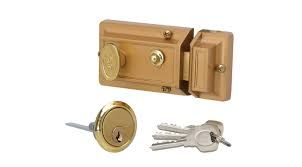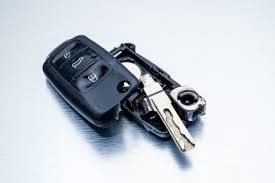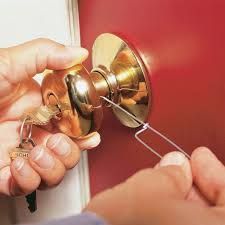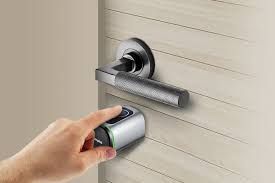Are You Set to Get a CCTV Camera? Check Out the Best
CCTV cameras would save you the cost of hiring private security for your home and businesses. CCTV cameras are used to detect and reduce criminal activities and record traffic movements. With CCTV cameras, you can have peace of mind and a sense of safety. You can improve the productivity of your business with a CCTV camera. It will help you with the needed extra you need on your employees.
Do you feel the need for CCTV cameras in your home and business centers? The CCTV market is filled with different brands at varying prices. We have put together some things to help you choose the best brand of CCTV cameras.
Let’s dive in!
How to Choose the Best CCTV Brand
A good surveillance system helps you observe who comes and goes at all times. There are several things to check before, but before getting one, consider the following thing.
1. Area of surveillance
Before you decide which brand of CCTV camera to buy, where would you install it? Would it be indoors or outside or for both? Not all brands of CCTV cameras can handle harsh weather conditions. And some CCTV cameras are best for indoor purposes only. To get the best brand of CCTV cameras, double check these carefully.
2. Camera field view
What is the size of the area you want the CCTV to cover? That also should decide the CCTV brand you choose. This will give you an idea of the number of cameras and the camera resolution you need. For a wider range, go for CCTV brands that provide better horizontal coverage. If the CCTV camera can capture a wider angle, then it would cover a larger area.
3. Storage capacity
It’s important to choose a CCTV brand with enough storage capacity. Since you will be operating the CCTV system non-stop. Especially if it is for your business, you wouldn’t want to lose footage. Choose a CCTV brand with high storage capacity so you can retain months of footage. You can decide to rewatch footage anytime you please.
4. Night vision
After the day’s work, you retire home. Your business is vulnerable at night. At this time most people are sleeping including you. Choose a CCTV brand that can monitor your business after working hours and alert you if there is any strange occurrence around your business. Check if the camera supports night recording and poor lighting conditions.
5. Video quality
CCTV brands with high video quality are often more expensive than other regular brands. You can use less quality for smaller spaces that don’t require high video quality. If your home or business area is prone to burglary and theft, then consider a brand with very high video quality.
Other Things to Consider
Privacy, indoor or outdoor use, motion detection and analytics, and wireless or wired. You should consider the price and ease of installation. A good CCTV brand should be durable and should last for a long period.
Types of CCTV Cameras
There are a lot of CCTV camera brands in the market, and knowing the types would help you choose the best CCTV brand for your home.
1. Dome
They are the basic and most economical cameras you could get in the market. Dome cameras are for indoor purposes. They are used for day-only projects.
2. Bullet
This type of CCTV can capture a long-range area. It is used to capture visuals of specific areas and it is perfect for outdoor security.
3. Thermal
Thermal cameras can capture heat radiations emitted by objects with or without lighting. This is best for areas with low lighting.
4. C-mount
It has a special lens that is detachable and allows you to change it to suit your needs. A normal security camera could cover a distance of about 40 feet, but a c-mount can go beyond that.
Top CCTV Brands in the Market
How well your CCTV will perform is mostly determined by the brand you choose. There are different brands of CCTV cameras in the market, and knowing the brands and their capacities would help you choose the best CCTV camera. Here is a list of brands you can choose from.
1. Hikvision
They are used for surveillance in homes, offices, malls, parks, and parking lots. They provide the most affordable cameras. It has a high-quality image, is easy to install, and provides data in real-time. It is also water and dust resistant.
2. Dahua
They have mostly 2MP camera resolution. They are mostly for indoor and small spaces.
3. Lorex
They have great quality night vision. And you can connect to it remotely.
4. Annke
They also have night vision and are easy to install. These cameras are usually not wireless. They are waterproof and have all-around encryptions.
5. Panasonic
They are of different types. With super image qualities. They have both outdoor and indoor CCTV cameras.
6. Samsung
Samsung offers a variety of CCTV cameras, including dome, bullet, and thermal. They are one of the best brands out there. You can access them remotely and they have high video quality.
7. Swann
They have both indoor and outdoor and thermal cameras. They don’t have sensors, but they have good video quality.
Other brands in the market
Moboti, Adiance, Vivotek, Arecont, Bosch, Sony, LG, etc.
The cost of a CCTV camera is not the first thing to consider before choosing one. Prices may be deceptive. That is why you should seek the advice of a home security expert.
Are You Set to Get the Best CCTV Camera?
Choosing the best CCTV brand may be difficult because of the technicalities involved. Installing it is more difficult if you don’t know how. You can have the best brand yet install it wrongly. CCTV cameras will make you feel safer at your home and business place if it is installed properly. Get a security expert to help you choose the best CCTV camera that suits your needs and install it.
Allow Brothers Locksmith, a security expert company in Phoenix, to help you install the best CCTV cameras in the right spot in your home and business location. Reach us now.
Call Us Any Time!








